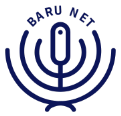Nurturing Reflective Learners for a Brighter Future
In an ever-evolving world, education must go beyond memorization and rote learning. The Cambridge Assessment International Education program emphasizes active learning, enabling students to develop essential skills such as critical thinking, self-assessment, and mindfulness. Among its core attributes, being a Reflective Learner is pivotal in shaping students into insightful and growth-oriented individuals.
Critical Thinking – Developing Analytical Minds
Reflective learners are encouraged to analyze and evaluate their learning experiences and outcomes. This process helps them identify what worked, what didn’t, and how to improve in the future. Critical thinking skills empower students to become independent problem-solvers and decision-makers.
Self-Assessment – Understanding Strengths and Areas for Growth
Regular self-assessment exercises play a crucial role in a student’s educational journey. By reflecting on their progress, students recognize their strengths and identify areas that need improvement. This self-awareness fosters a mindset of continuous learning and adaptation.
Goal Setting – Building a Roadmap to Success
Setting realistic and achievable goals is a fundamental aspect of being a reflective learner. Cambridge learners are guided to set short-term and long-term goals, regularly reflecting on their progress. This practice helps students stay motivated, focused, and committed to their academic and personal growth.
Mindfulness – Enhancing Mental Well-Being
Practices such as meditation, journaling, and self-reflection cultivate mindfulness in students. A reflective approach not only enhances academic performance but also promotes emotional resilience and well-being. Mindfulness enables students to manage stress, stay focused, and develop a positive attitude toward challenges.
Experiential Learning – The Cambridge Approach
Unlike traditional teaching methods where knowledge is simply transferred from teachers to students, Cambridge promotes Experiential Learning. This approach encourages students to actively construct knowledge through practical experiences, discussions, and real-world applications.
Akal Academy Baru Sahib – A Hub of Holistic Education
Established in 1986, Akal Academy Baru Sahib is a premier boarding school that integrates faith-based education with modern learning methodologies. It was the first institution in Northern India to introduce an IB-PYP (International Baccalaureate Primary Years Program) authorized world school in 2013, alongside its Cambridge International affiliation. The academy focuses on academic excellence, character building, and spiritual growth.
Preparing Students for a Global Future
The five Cambridge Learner Attributes—Confidence, Responsibility, Reflection, Innovation, and Engagement—are key to shaping students into well-rounded individuals. By fostering reflective learners, the Cambridge curriculum ensures that students are equipped to tackle the complexities of the world with insight, resilience, and adaptability.
For more information, explore Akal College of NSG Eternal University Baru Sahib, Akal University Talwandi Sabo, and Eternal University, Baru Sahib Sirmour.













Add comment